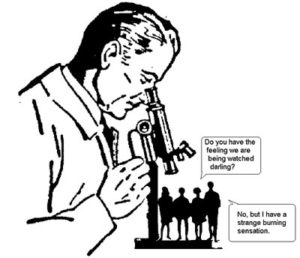 I was on a train to Gloucester earlier this week and my eyes were drawn to the laptop screen of the woman sitting next to me: the title of the paper she was working on had ‘ethnography’ in it. We began chatting it transpired that she’s Dr. Susan Balderston, a research fellow at Birmingham University. Her current 4-year ethnographic research project is focused on women in prisons. Continue reading “Serendipity”
I was on a train to Gloucester earlier this week and my eyes were drawn to the laptop screen of the woman sitting next to me: the title of the paper she was working on had ‘ethnography’ in it. We began chatting it transpired that she’s Dr. Susan Balderston, a research fellow at Birmingham University. Her current 4-year ethnographic research project is focused on women in prisons. Continue reading “Serendipity”
Ethnography as a research method

1. Think of three good research questions that could be answered using this approach.
It’s worth noting that I have a personal interest in each of the three possible areas of study outlined below. As Blum Malley and Hawkins advise, “no matter what, the most important factor when selecting your own site is choosing a place or space or group of people to whom you already feel connected in some way, either by direct membership, burgeoning interest, or cultural/political belief…’ Continue reading “Ethnography as a research method”
Observation

This week’s adventure in research involved engaging in an observation and taking notes. This was the challenge:
“Find a public space that interests you and spend a few hours (over a period of a few days, ideally) making some field notes about what you see going on. The following questions might be useful as a guide to your field notes:
- Where are you? – describe the setting in as much detail as you can.
- Why did you choose this setting?
- What activities are people undertaking? What interactions are occurring?
- What sparks your curiosity about where you are and what is going on?
- If you were new to this culture, what might you wonder about?”
MOOC – week 2 reading – Engaging Communities
MOOC: week 2 watching – ethnography
Notes taken on this video, crunched by VocabGrabber.
